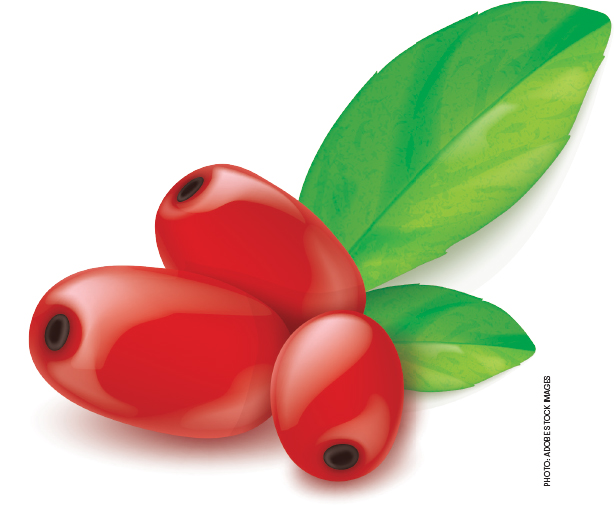
Ting Bao, MD, DABMA, MS

Jyothirmai Gubili, MS
The ASCO Post’s Integrative Oncology series is intended to facilitate the availability of evidence-based information on integrative and complementary therapies sometimes used by patients with cancer. In this installment, Ting Bao, MD, DABMA, MS, and Jyothirmai Gubili, MS, focus on the use of berberine—
an alkaloid found in plants—because of its growing popularity for managing blood sugar, cholesterol, and triglyceride levels.
Common Names: Berberine alkaloid, Berberine HCL, Daruharidra
Overview
Berberine is an alkaloid found in plants such as goldenseal, tree turmeric, and prickly poppy. It is used in many medicinal systems including Ayurveda and traditional Chinese medicine for inflammatory disorders, digestive conditions, and infections. It is also marketed in supplemental forms to support healthy blood sugar, triglyceride, and cholesterol levels.
The Science
Growing evidence suggests berberine may improve lipid profiles. In a systematic review of 11 clinical trials with 874 patients with hyperlipidemia, type 2 diabetes mellitus, or both diseases, berberine was found to be associated with a significant decrease in blood total cholesterol (0.61 mmol/L), triglyceride (0.50 mmol/L), and low-density lipoprotein (LDL)-cholesterol (0.65 mmol/L) concentrations compared with the control group. The treatment duration in these studies ranged from 8 to 52 weeks with a daily berberine dose between 0.5 g and 1.5 g.1 However, many studies in this analysis were of low quality, warranting the need for more robust, larger trials.

Another meta-analysis of 16 trials involving 2,147 patients with hyperlipidemia also reported significant reductions in levels of total cholesterol by −0.47 mmol/L (95% confidence interval [CI] = −0.64 to −0.31); LDL-cholesterol by –0.38 mmol/L (95% CI = −0.53 to 0.22); and triglyceride by –0.28 mmol/L (95% CI = −0.46 to −0.10). The dosages of berberine in these studies ranged from 600 mg to 1,500 mg/d, with a treatment duration lasting from 1 to 24 months.2 However, the authors concluded that most trials were heterogeneous or had a high risk of bias.
A third systematic review of 12 studies associated berberine with significant reductions in parameters that may indirectly affect metabolic disease symptoms such as body weight (P < .001), body mass index (P < .001), waist circumference (P = .018) and C-reactive protein concentrations (P = .034).3
In addition, data suggest benefits with berberine combined with other supplements including red yeast rice, policosanol, astaxanthin, folic acid, and coenzyme Q10 for lowering cholesterol4 and for improving lipid profiles in statin-intolerant patients.5,6 However, activity of such formulations is limited because of the low oral bioavailability of berberine. Research is underway to circumvent this limitation.
Guest Editor

Jun J. Mao, MD, MSCE
Dr. Mao is the Laurance S. Rockefeller Chair in Integrative Medicine and Chief of Integrative Medicine Service at Memorial Sloan Kettering Cancer Center, New York.
In cancer settings, 0.3 g of berberine taken twice daily reduced the risk of recurrence of colorectal adenoma (n = 1,108; relative risk ratio for recurrence = 0.77, 95% CI = 0.66–0.91; P = .001), suggesting a role in chemoprevention after -polypectomy.7
Mechanistic studies suggest the atheroprotective effects of berberine are likely via increased expression of hepatic LDL receptor, reduced LDL receptor modulator proprotein convertase subtilisin/kexin 9, and through improvements in endothelial dysfunction.8 Berberine also showed statin-like effects in animal models by decreasing LDL and total cholesterol levels and aortic lesions, along with improving glucose tolerance while reducing glucose levels, adipose tissue, and weight.8
Adverse Reactions
Mild events including anorexia, upset stomach, diarrhea, constipation, and rash have been reported with the use of berberine.2,9,10
Herb-Drug Interactions
Tacrolimus: Clinically relevant increases in tacrolimus concentrations and renal toxicity occurred when berberine was added to control diarrhea in a pediatric patient with idiopathic nephrotic syndrome.11
Cyclosporin: In recipients of a renal transplant, berberine increased cyclosporin blood concentrations.12
CYP450 Substrates: Repeated oral intake of berberine at a dose used in some human studies significantly reduced 2D6, 2C9, and 3A4 activities.13
Bosutinib: When coadministered with clinically relevant doses of berberine supplements, simulations predicted a 1.3-fold increase in systemic exposure to bosutinib but not to imatinib.14
Sulfonylureas: Berberine coadministration may compromise the metabolism of sulfonylureas or mutually affect the metabolism of both compounds.15 Clinical significance of this interaction is not known.
Warning
Pregnant or breastfeeding women should avoid berberine because it may worsen jaundice in infants or lead to kernicterus, a condition in which prolonged high bilirubin content can cause irreversible effects.16
Summary
Several small clinical trials suggest berberine’s effectiveness in reducing total cholesterol and LDL levels, improving metabolic markers such as body weight, body mass index, and weight circumference, as well as reducing inflammation. Furthermore, a large randomized controlled trial found that berberine reduced the risk of colorectal adenoma recurrence and may have potential as a chemopreventive agent. However, it should be noted that berberine is associated with mild gastrointestinal toxicities and may interact with certain drugs via CYP enzymes. Determining the potential role of berberine in helping patients with cancer requires additional large, well-designed clinical trials.
DISCLOSURE: Dr. Bao has served as a consultant or advisor to Eisai. Ms. Gubili reported no conflicts of interest.
REFERENCES
1. Dong H, Zhao Y, Zhao L, et al: The effects of berberine on blood lipids: A systemic review and meta-analysis of randomized controlled trials. Planta Med 79:437-446, 2013.
2. Zhang LS, Zhang JH, Feng R, et al: Efficacy and safety of berberine alone or combined with statins for the treatment of hyperlipidemia: A systematic review and meta-analysis of randomized controlled clinical trials. Am J Chin Med 47:751-767, 2019.
3. Asbaghi O, Ghanbari N, Shekari M, et al: The effect of berberine supplementation on obesity parameters, inflammation and liver function enzymes: A systematic review and meta-analysis of randomized controlled trials. Clin Nutr ESPEN 38:43-49, 2020.
4. Pirro M, Francisci D, Bianconi V, et al: NUtraceutical TReatment for hYpercholesterolemia in HIV-infected patients: The NU-TRY(HIV) randomized cross-over trial. Atherosclerosis 280:51-57, 2019.
5. Marazzi G, Campolongo G, Pelliccia F, et al: Usefulness of low-dose statin plus ezetimibe and/or nutraceuticals in patients with coronary artery disease intolerant to high-dose statin treatment. Am J Cardiol 123:233-238, 2019.
6. Millán J, Cicero AFG, Torres F, et al: Effects of a nutraceutical combination containing berberine, policosanol, and red yeast rice, on lipid profile in hypercholesterolemic patients: A meta-analysis of randomised controlled trials. Clin Investig Arterioscler 28:178-187, 2016.
7. Chen YX, Gao QY, Zou TH, et al: Berberine versus placebo for the prevention of recurrence of colorectal adenoma: A multicentre, double-blinded, randomised controlled study. Lancet Gastroenterol Hepatol 5:267-275, 2020.
8. Pirillo A, Catapano AL: Berberine, a plant alkaloid with lipid- and glucose-lowering properties: From in vitro evidence to clinical studies. Atherosclerosis 243:449-461, 2015.
9. Yan HM, Xia MF, Wang Y, et al: Efficacy of berberine in patients with non-alcoholic fatty liver disease. PLoS One 10:e0134172, 2015.
10. Meng S, Wang LS, Huang ZQ, et al: Berberine ameliorates inflammation in patients with acute coronary syndrome following percutaneous coronary intervention. Clin Exp Pharmacol Physiol 39:406-411, 2012.
11. Hou Q, Han W, Fu X: Pharmacokinetic interaction between tacrolimus and berberine in a child with idiopathic nephrotic syndrome. Eur J Clin Pharmacol 69:1861-1862, 2013.
12. Wu X, Li Q, Xin H, et al: Effects of berberine on the blood concentration of cyclosporin A in renal transplanted recipients: Clinical and pharmacokinetic study. Eur J Clin Pharmacol 61:567-572, 2005.
13. Guo Y, Chen Y, Tan ZR, et al: Repeated administration of berberine inhibits cytochromes P450 in humans. Eur J Clin Pharmacol 68:213-217, 2012.
14. Adiwidjaja J, Boddy AV, McLachlan AJ: Physiologically based pharmacokinetic model predictions of natural product-drug interactions between goldenseal, berberine, imatinib and bosutinib. Eur J Clin Pharmacol 78:597-611, 2022.
15. Singh A, Zhao K, Bell C, et al: Effect of berberine on in vitro metabolism of sulfonylureas: A herb-drug interactions study. Rapid Commun Mass Spectrom 34(suppl 4):e8651, 2020.
16. Fan J, Zhang K, Jin Y, et al: Pharmacological effects of berberine on mood disorders. J Cell Mol Med 23:21-28, 2019.
Dr. Bao is Director of Integrative Breast Oncology at the Integrative Medicine Service, Memorial Sloan Kettering Cancer Center, New York. Ms. Gubili is Editor, also at the Integrative Oncology Service, Memorial Sloan Kettering Cancer Center, New York.

